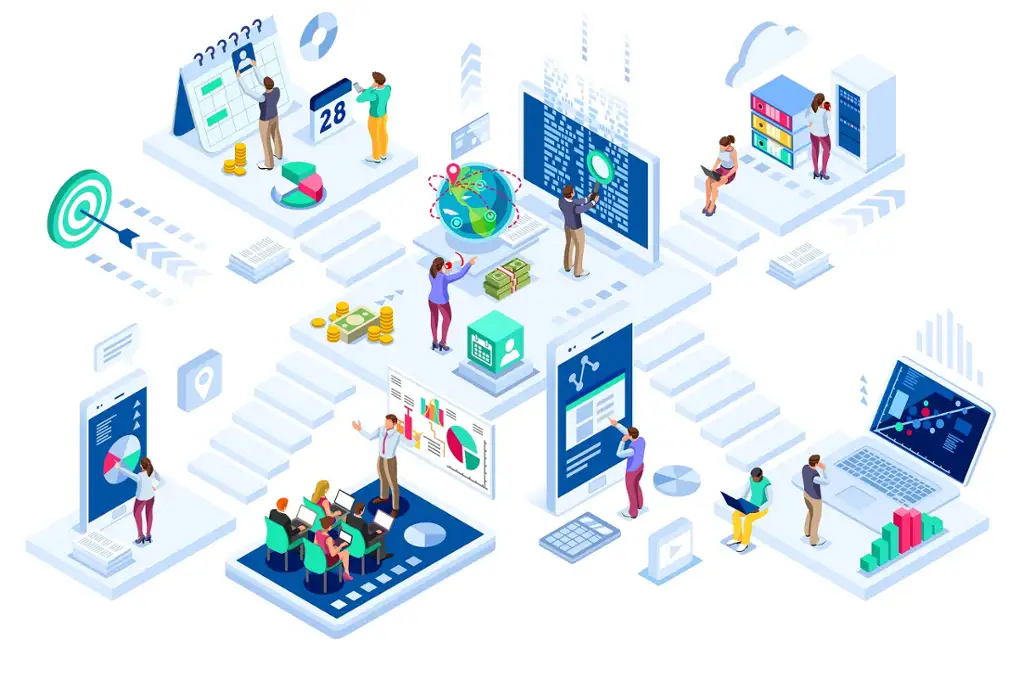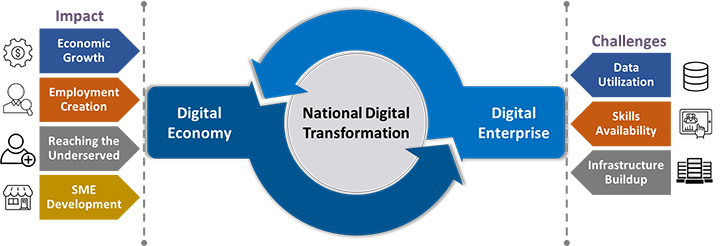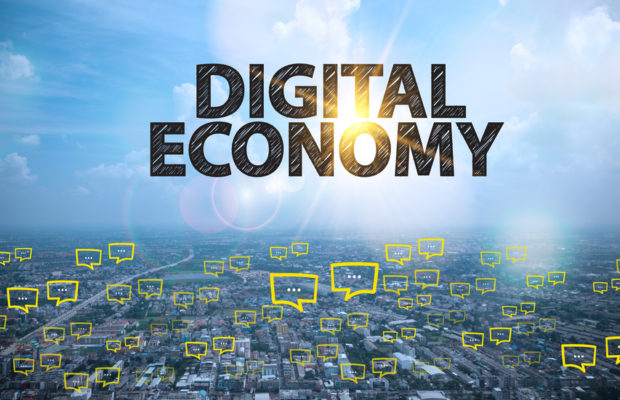Impact of digital economic platforms: are they truly game-changers? People buy, sell, work, and chat using digital spaces. These spaces have flipped the way we look at jobs, shops, and even our own choices. Let’s dive in and see how deep this rabbit hole goes. We’ll explore how they shape money matters, work life, rules, and even our society. By now, you might be using these platforms more than you know. Stick around, and I’ll show you exactly what this digital shift means for all of us.

Understanding the Economic Impact of Digital Platforms
The Rise of Online Marketplaces and Virtual Marketplaces
Online marketplaces are taking over. People buy and sell goods all day, every day on the internet. Sites like eBay or Etsy started small but now sell millions of items. They connect buyers and sellers from anywhere. This is huge for small businesses. They can reach customers far away without big costs.
This rise has led to virtual marketplaces too. They’re like online malls with many shops inside. Imagine buying a book, shoes, groceries, and a phone all in one place. That’s what these sites offer. It’s convenient and fast. People love that. More shoppers go online, so more shops open there too. It’s a big loop that keeps growing.
Network Effects and Data-Driven Business Model Implications
Let’s talk about network effects. That’s a fancy way of saying the more people use something, the better it gets. Like a snowball rolling downhill, it grows and grows. For digital platforms, more users mean more data. And data is king.
These platforms learn from data. They see what people like and make better suggestions. They can tell you what to buy next. Or they find you the perfect movie. Apps get smarter and keep users coming back for more. That’s a smart business, right?
Data helps in other ways too. Companies know where to put ads or what new things to make. They learn how to save money but still give customers what they want. It’s a win-win.
But, it’s not just about ads and products. This business model makes firms strong against rivals. When you have a lot of users, it’s hard for a new company to compete. They don’t have the same amount of user data to learn from. So, big digital platforms stay big. This can be tough on competition.
Now, not everything is perfect. There are worries about who controls all this data. People care about their privacy. They don’t want to be just data points. Companies are working on this, but it’s a big chat that we all need to have.
So, there you have it. Digital platforms changed the game. They make buying and selling easy. And with data, they keep making it better. It’s smart, fast, and always changing. We shop more, we work differently, and we’re always looking at what’s next. That’s the power of the digital economy.
The Gig Economy and Labor Markets Evolution
How App-Based Services Are Reshaping Work Structures
App-based services turn traditional jobs on their head. Think Uber or DoorDash. Folks now have the freedom to work when they want. This is huge. Instead of 9 to 5, you decide your schedule. Need to earn extra cash? Turn on the app and go. Want a day off? Just don’t log in. Simple.
But it’s not all roses. These gigs often don’t give benefits like health insurance. And the pay isn’t always steady. Plus, job security? Not really a thing. Things can change fast, and workers have to adapt.
Still, many see the trade-off as worth it. They love the flexibility. And for people who need to work around a tight schedule, gig jobs can be a lifesaver.
The Interplay between Digital Services Growth and Employment
Now, let’s talk about how digital growth links to jobs. More online services mean more tech roles. Sounds good, right? But it’s tricky. These jobs need skills. Not everyone has them. So, we see gaps. Some have great jobs, others don’t.
This digital boom also creates jobs outside tech. Someone has to deliver the goods these websites sell. And as more businesses go online, they need folks to manage that. Marketing, customer service, data analysis – all these roles now matter more.
But what about shops on the street? They struggle. They have to keep up with e-stores. They need websites, online ads, and ways to get their stuff to customers. It’s tough.
The silver lining? This all leads to innovation. Shops find new ways to attract customers. They use social media, they make their websites pop, and some even start their own delivery services. It’s a race to the top.
Employment isn’t just about jobs anymore. It’s about skills, about keeping up with the digital world. It’s about finding the gaps in the market and filling them. That’s the heart of the gig economy. And it’s changing the labor markets as we know them.
Regulation and Competition in the Platform Economy
Navigating Digital Marketplace Regulation
Digital platforms shake up how we do business. Think of big online shops or app services. They reach many with a click. This scale is huge. It’s why rules are key. Rules keep these markets safe and fair. But it’s tough. We must keep the web’s open feel. We need to let new ideas thrive. Yet, we can’t let a few control all.
Market rules must be just right. They must curb bad acts, yet not curb growth. It’s a fine line to walk. Often, it feels like we’re building a plane in the air. We change laws as tech races on. It’s a wild ride, but one we must get right. Lives and jobs are in play.
Rules guide what platforms can do. Take data privacy. It’s a big deal today. Rules help protect our personal details. They make sure firms play fair with data. This builds trust in the digital world.
Now, let’s look at jobs in the gig world. People can work when and where they want. It’s good for some but tough for others. We need rules that keep workers safe. The goal is to shield them but also keep gig jobs alive.
Regulation is needed. It shields buyers and sellers in these big web shops. It makes sure all have a fair shot at doing well. This helps the whole economy grow.
Balancing Tech Innovation with Fair Competition
Tech brings new things every day. It changes how we live and work. But this must be fair. We can’t let just one own the whole field. That’s not good for anyone.
New ideas need space to grow. Big firms should not crush them. We want many ideas, not just one or two. This will make our future bright. It’s called competition. It keeps prices fair and quality high. We all win with it.
Fair play is a must. It lets small firms have a seat at the table. It stops big ones from being bullies. This balance is hard but worth it. It lets everyone have a say in the tech world.
Balance is tough. But it’s the key. We need big and small players. They all add to the game. They make our economy strong. Innovation plus fair play equals growth.
We’ve seen apps change how we buy food or get rides. These help us. But they must not hurt other firms by being unfair. All must have a chance to win.
So, rules must be smart. They need to back new ideas. But they also need to keep the market open. This way, tech keeps adding to our lives. It makes things better, not worse. This balance is what we all need. It lets tech light up our futures.

Consumer Behavior and Societal Transformations
The Influence of Online Platforms on Consumer Choices
Online platforms change how we shop and make choices. Before, we went to stores or asked friends for tips. Now, screens and clicks guide us. We see ads for goods we chat about. It’s like magic but it’s tech reading what we do online.
These platforms leave marks on our wallet and wants. A quick look at huge e-commerce sites shows us endless stuff. Shiny gadgets and trendy clothes call our name. We buy with a tap. It’s fast, easy, and fun. We don’t see the cash leave our hand. But our bank account feels it.
Do online platforms make us spend more? Yes, they do. Sales pop up just for us. They know what we like. Say hello to peer-to-peer platforms. They’re like digital pals. They link us to folks who share cars, homes, or skills for cash. Handy, right?
This online world grows every day. We get to see products from far lands. Cool, right? It makes our small world even smaller. Tech startups know this. They race to give us the next big thing. Everything grows fast. It’s a big ecosystem that feeds off our clicks.
Assessing the Societal Effects of Digitalization
Now let’s talk about digitalization – it’s big. It touches how we live, learn, and link up with each other. Schools go digital. Kids learn on screens, not just in class. Doctors see us via video. We don’t have to wait in dull rooms anymore.
But it’s not all thumbs up. Shops shut as we click away. Jobs change. Store clerks now pack boxes in huge warehouses. Robots might take over. It’s a bit scary. But we also find new work in the gig economy. Some like the freedom it gives.
With apps, we hire a car or find a fixer for our sink with ease. We love the slickness. But not all that shines is gold. We start to ask: who’s winning here? The worker, the app, or us? Sometimes it’s hard to tell.
This change strikes deep. It can be good or not so good. It depends on how we handle the growth of these online worlds. We need smart people to make rules that keep it fair. We want choices and a market that doesn’t play tricks.
Our lives twist and turn with every new tech. Some things come and go. But others stick around and shape our days. We keep scrolling, tapping, and liking. We chat, share, and learn in ways never thought before. This is our new normal. It’s fast. It’s digital. And it’s here to stay.
So there you have it—a quick dive into how digital life messes with your head and heart. It changes not just what you buy, but how you think and feel. It’s a wild ride, but together we can make it work for us, not against us.
In this post, we explored how digital platforms change our world. We saw how online shops and virtual spaces grow fast. They affect the economy big time. They change how businesses work, using data and networks to get ahead.
We also looked at the gig economy. We saw apps change our jobs and how we work. Now, many people work in new ways, and more people can find jobs. But, it’s not simple. We must make sure jobs are fair and good.
We talked about rules for digital markets. They must be fair but not stop new ideas. It’s tricky to keep things in balance.
Lastly, we saw how we buy and live differently because of the internet. Online places shape what we buy and how we think. They also change how we live as a society.
To close, these changes are huge. We must understand them to make the best of them. Let’s embrace this digital age with know-how and care. This will help us all do well in the years to come.
Q&A :
How are digital economic platforms transforming traditional industries?
Digital economic platforms, such as e-commerce marketplaces, gig economy platforms, and peer-to-peer services, are revolutionizing how traditional industries operate. They facilitate direct interaction between service providers and consumers, increase market efficiency by matching demand with supply in real-time, and often reduce costs by eliminating intermediaries. This transformation is paving the way for increased competitiveness, innovation, and accessibility across various sectors.
What are the major benefits of participating in digital economic platforms?
Individuals and businesses involved in digital economic platforms benefit from a wider reach to potential customers, flexible working arrangements, and the ability to scale operations quickly. Such platforms offer real-time data analytics and insights which help in making informed decisions, optimizing strategies, and personalizing offerings. Increased efficiency, reduced transaction costs, and the facilitation of new business models are among the key advantages participants may experience.
Can digital economic platforms contribute to economic growth?
Yes, digital economic platforms contribute significantly to economic growth by creating new opportunities for entrepreneurship, employment, and revenue generation. They serve as catalysts for innovation and productivity, encourage cross-border trade, and can help to democratize access to services and markets for a broader range of participants, thus fostering economic development.
Are there any risks associated with the growth of digital economic platforms?
While digital economic platforms offer numerous benefits, they also come with risks such as increased market concentration, potential for gig worker exploitation, privacy concerns, and cybersecurity vulnerabilities. Additionally, their rise can disrupt existing businesses and labor markets, leading to the need for regulatory frameworks to address these new challenges and ensure fair competition and protection for all stakeholders.
How do digital economic platforms affect employment patterns?
Digital economic platforms are changing employment patterns by promoting flexible, gig-based, and remote work opportunities. Traditional employment relationships are evolving as more people engage in short-term contracts or freelance work facilitated by these platforms. While this can lead to increased autonomy and work-life balance for some, it may also result in a lack of job security and benefits for others, highlighting the need for adequate labor policies and protections in the digital economy.
